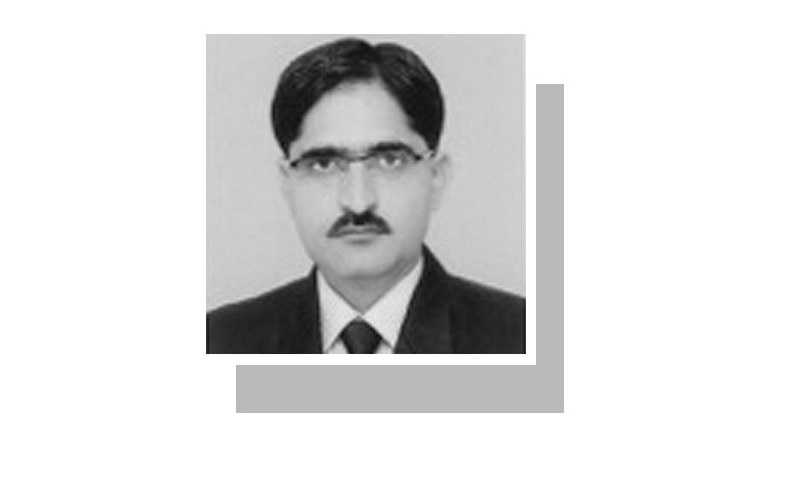
OUR judiciary is in a gloomy position, with millions of cases awaiting disposal. The state has failed to fulfil its social contract to provide speedy and substantive justice for its citizens. Regardless of who is responsible, it’s the people who suffer — their basic rights exist in law but not in practice and many have yet to realise the fundamental rights as stated in the 1973 Constitution. Notwithstanding such a complex reality, we see a ray of hope in Punjab’s judiciary.
‘Every cloud has a silver lining, and so I do not despair.’ The Punjab judiciary has started showing signs of change. Speeding up the dismissal of corrupt elements from the lower ranks of the judiciary and integrating case management technology are to be applauded. The introduction of a mobile app, updating litigants on the status of their cases and issuing summons and notices electronically, is commendable. A 2016 Case Management Plan has been approved in a meeting of the Lahore High Court. This includes centralised and multicolour cause lists, formulation of time-specific dockets, constitution of special benches based on categories of cases, three month rosters, auditing of all pending cases, specialised division benches and revisions of objection sheets. The Lahore High Court chief justice, Syed Mansoor Ali Shah, and his team deserve the credit.
Judicial reforms must be institutionalised.
There is no denying Justice Shah’s contributions, but the process of judicial reforms is not institutionalised. Moreover, the chief justice’s tenure is not secured in the Constitution and, therefore, reforms initiated by one chief justice often die later on. We have experienced this at the national level after the retirement of Chief Justice Iftikhar Chaudhry. The battle against corruption, incompetence and delay has not yet succeeded. Reform processes must be institutionalised under the Constitution, and rules and orders relating to proceedings in the high courts, ensuring space for evolution and improvement.
Currently, judicial policymaking is flawed on three grounds. First, there is no reliable data to inform policymakers (eg there is no data on citizens’ perceptions of judicial performance). Forming policy without stakeholder consultation has no credibility.
Second, judicial policy is often made without formal input from lawyers and relevant government departments, so even policies conceived by a brilliant judicial leader don’t produce the desired results. In order to make reforms a success, meaningful consultation between the bench and bar is a must.
Third, there is no specific criterion to monitor implementation and measure the performance of the judiciary. The Supreme Court chief justice and other members of the superior judiciary may address these lacunae. Having a professional chief justice in Punjab, we hope that judicial policymaking and consultation will come to be institutionalised.
A few points deserve special attention. Case management should focus on managing proceedings within the courts. Too often, lawyers surround the rostrum, creating difficulty for themselves (eg preventing young lawyers from being heard) and the court (eg preventing a clear debate and privileging haphazard interjections). Also, petitions are often clubbed together assuming they involve a similar point of law, but this is only rarely the case. The handling of cases in such a manner leaves important legal issues undecided, causing multiplication of litigation. Unorganised proceedings waste time, increase the number of adjournments and prevent judges from appreciating the complexities of law and facts, thus undermining the quality of decisions.
Haphazard proceedings paint a poor image of the judiciary within the population as a whole. All lawyers and litigants should be given equal opportunity of hearing. Time slots may be provided for different categories and stages of cases. Fixed timings for hearings in each case should be stated in the list of cases displayed outside the courtrooms. The lawyers may be persuaded to file written submissions and/or complete their arguments within the given time frame. Indeed, it would help lawyers deliver a more precise and effective argument. It would also reduce adjournments and the number of leftover cases.
The government, judges, lawyers and civil society need to support judicial reforms initiated by the Punjab judiciary. They need to work together to ensure the provision of speedy justice. This requires an informed policymaking process based on research and step-by-step implementation. It needs a thorough appraisal of the judiciary as well as of the legal profession as a whole. The Supreme Judicial Council and the Pakistan Bar Council need to play their roles effectively. Those who fail to act in a professional manner should be proceeded against by the relevant authorities — and those who deliver must be appreciated through promotion and national awards. Simply punishing the lower judiciary and reprimanding young lawyers is not enough.
The writer is a lawyer based in Lahore.
Published in Dawn September 22nd, 2016










































